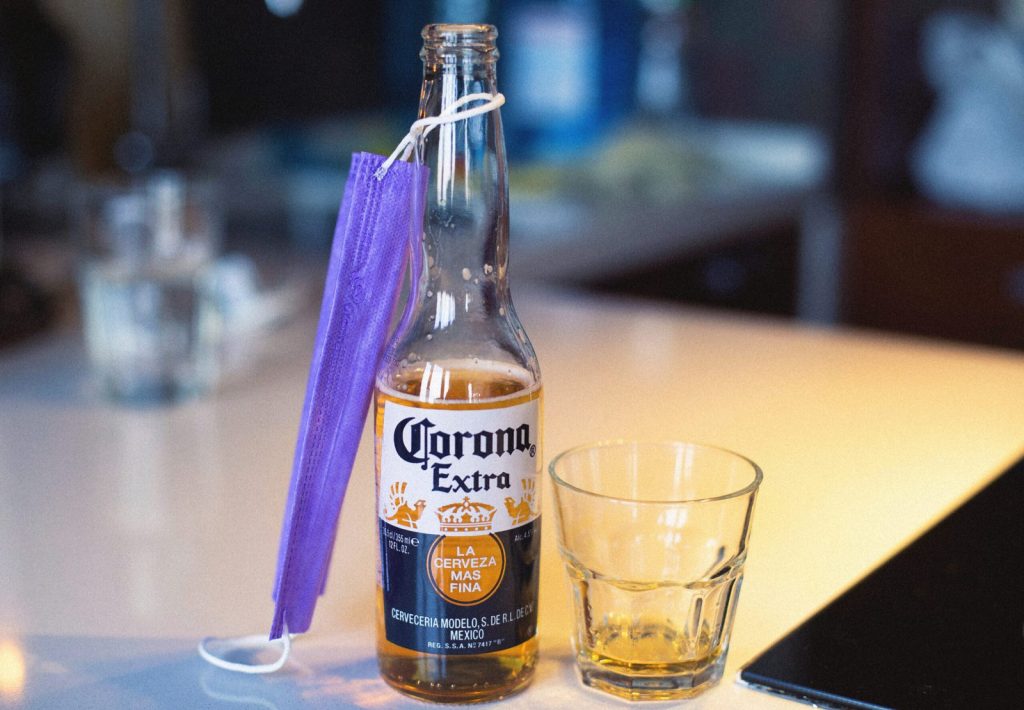
Three scary marketing case studies to help marketers avoid marketing fails by remaining sensitive to your audience and learning to adapt your message fast.
Plenty of people will always associate 2020 with dire health concerns and economic uncertainty. Marketers may not need to wait for Halloween to evoke feelings of fear and dread. Still, in the spirit of the spooky season, take a look at some marketing case studies that can help businesses avoid future pitfalls and perform fearlessly in the future.
The 2020 marketing case study hall of horrors
This year provided plenty of opportunities for businesses to rise above their circumstances. You may have read about pizza shops that used their ovens to mold personal protective equipment and distilleries that produced hand sanitizer. Of course, those positive marketing stories do not belong here. Instead, take a quick look at some of 2020’s most visible marketing missteps.
1. Unlucky Corona
Founded in the 1920s, Corona beer has become one of the world’s most popular beer brands. Fantastic marketing ensures people think of their brand when they picture a cool bottle of beer with a lime stuck in the top. Sadly, the brewer launched a new drink called Corona Spritzer in February of 2020, just about the time that people started associating Corona with coronavirus.
Sadly, the product introduction did not perform well. Search Engine Journal said that even though it’s tough to delay a launch, that’s exactly what they should have done. Even though most people realize that Corona beer has nothing to do with coronavirus, studies found that purchase intent had dropped to its lowest level in two years. Introducing an anti-coronavirus hand sanitizer would probably have yielded better results for their brand.
2. Poor-timing Progressive
By March of 2020, a lot of states and cities had already closed bars and restaurants to help encourage social distancing. During that same month, Progressive Insurance used the backdrop of a karaoke bar to promote their online insurance site. Of course, nobody inside of the crowded bar even had a mask on, which lots of people find frightening these days.
Just about a month later, Sharablee, a market intelligence company, asked consumers what they wanted out of advertising during COVID-19. Well over half said they preferred ads that reflected the new normal. Progressive probably should have changed that advertisement to a karaoke Zoom party to avoid getting singled out for bad taste in a digital advertising case study.
3. Tone-deaf McDonald’s
Corona’s and Progressive’s worst offenses might include poor timing and an inability to pivot their marketing campaigns fast enough. They probably did not do any serious damage to their brands. At the same time, any advertising case study of some of McDonald’s messaging might draw more criticism that their attempt to sound sympathetic to people’s plight during the pandemic came off as insincere.
McDonald’s posted an image on social media with their famous golden arches separated from each other. They paired the image with the idea that it represented solidarity with social distancing measures to help curb the virus. The company’s critics, including politicians with large audiences, responded that the company could better demonstrate solidarity by improving employee benefits, like paid sick leave.
Like other hospitality companies, McDonald’s suffered too during the pandemic. According to CNN, revenues fell 30 percent in the second quarter when compared with the same quarter of 2019. Still, the message may sound hollow to employees without paid sick leave and people who sympathize with them.
?
— David Ligon (@VanLigon) March 20, 2020
How about pay your workers a living wage! I went thru the drive thru yesterday and it was crazy busy. Also fix your Dr. Pepper! It tastes nothing like Dr. Pepper. I bet it’s Dr. Brown’s or some bottom shelf nonsense! @McDonalds https://t.co/xeNKJ0pvdW
How to avoid the coronavirus marketing crypt of horror
The coronavirus pandemic caused a very abrupt and unexpected business disruption. Even such good marketers as Progressive, Corona, and McDonald’s made mistakes. Still, successful marketers know they need to adapt to changes, even when those changes emerge rapidly.
Businesses like Progressive and Corona simply failed to pivot fast enough in response to changing consumer sentiment. Even unconsciously, the sight of happy crowds sharing beer or performing like their favorite rockstar can turn people off during these socially-distanced times. McDonald’s might have been better served by promoting any positive actions they were taking to protect their employees and not a fist bump that some interpreted as insincere. Brands need to reflect their audiences, which can include customers, employees, and sometimes even politicians.


